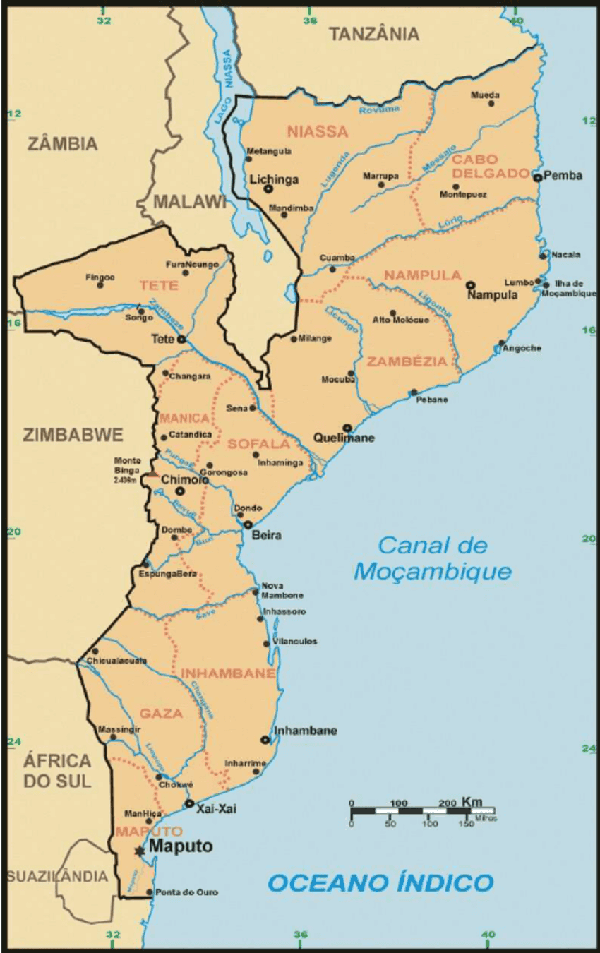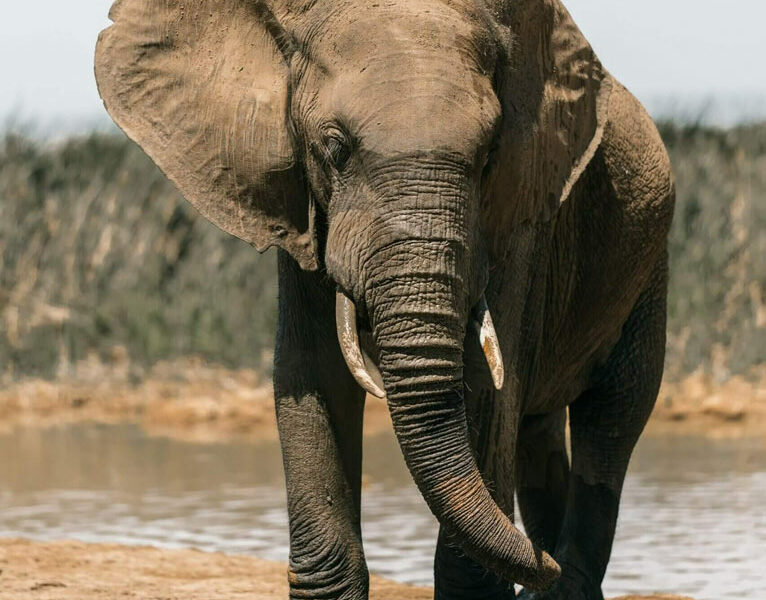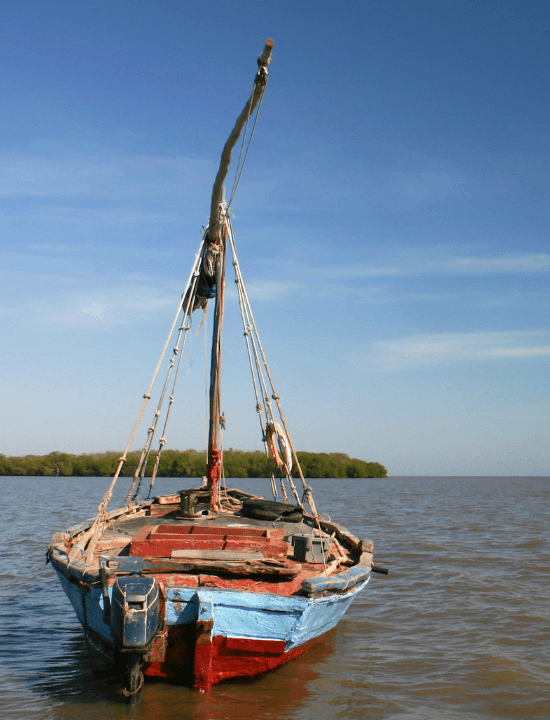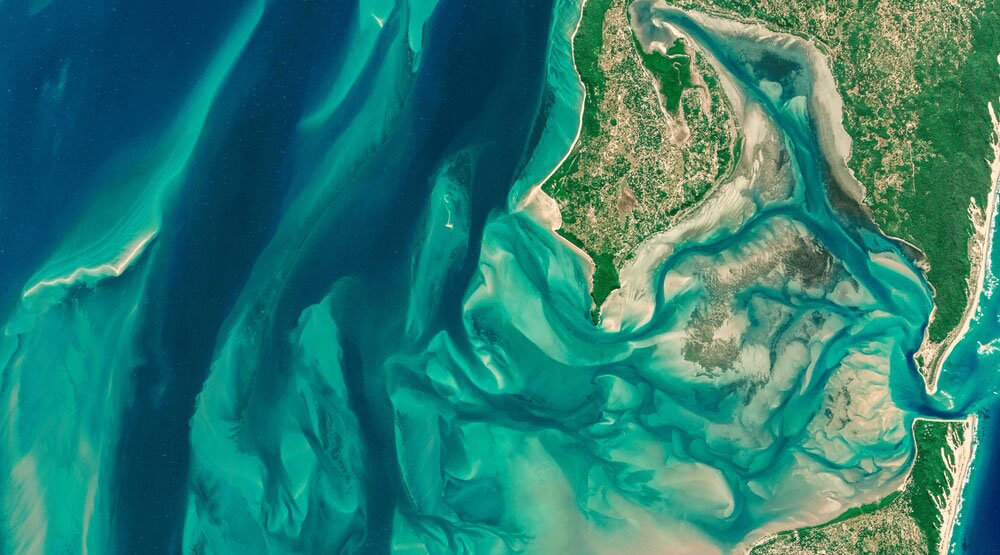Big Game Hunting in Mozambique
Mozambique is renowned for many things: Idyllic beach holidays, tourism adventures, and classic out-of-Africa getaways. But, did you know that Mozambique is also home to some of the best game hunting adventures in Africa? From hunting and nightlife to nature conservation and culture, Mozambique is an African adventure destination for one and all. A hunter can tick the boxes in terms of luxurious accommodation, as well as varied and enthralling entertainment to keep his loved ones amused, while he merrily enjoys his African hunt!
[DYNAMIC-BLOGTABLEOFCONTENT]
Tropical Climates and Rising Temperatures
When planning a big game hunting trip to Mozambique, it’s wise to heed of the weather and season. Mozambique has a tropical climate with a dry season running from April to September and a wet season from October to March, which brings occasional tropical cyclones. The weather is altitude dependent, with the northern and northeastern areas of the country being hotter and more humid than those in the southern regions and higher-altitude areas like Niassa cooler.
Landscape and Geography
Covering an area of over 309,000 square miles, Mozambique borders South Africa, Tanzania, Malawi, and Zimbabwe, with the mighty Zambezi River splitting the country into two distinctive areas.
The northern coastline gives way to hills and low plateaus with highlands Niassa, Tete, and Shire in the northwest. The lowlands south of the Zambezi are marked by broad plateaus, while in the deep south, you’ll find the Lebombo Mountains. Due to its abundant mangroves and wetlands, the central coast from Bazaruto to Angoche Island is known as Sofala Bay and the Swamp Coast. The northern coastal areas are known for rugged cliffs and rocky outcrops.

Mozambique Hunting Areas
Hunting in Mozambique is conducted in concessions known as coutadas, which are areas specifically set aside for sport hunting. Coutadas are known as concession areas in the rest of Africa. There are six hunting blocks located in the buffer zone of the Niassa National Reserve, as well as a few community hunting areas and game ranches.
The protected areas of Mozambique, known as conservation areas are categorized as national parks, national reserves, forest reserves, community conservation areas, wildlife utilization areas known as coutadas, and a few private game hunting farms.
There are 6 national parks, 8 reserves and 13 coutadas. Most of the well-known hunting areas are coutadas along the southern regions of the Zambezi River and in the north, Niassa also has its fair share of coutadas and the sought-after Niassa hunting blocks. Other popular hunting areas are around Cahora Basa Dam adjoining the Chewore Safari area (Zimbabwe) and other concessions along the eastern border with Zimbabwe. The most southerly hunting area falls within the Greater Lebombo Conservancy, forming part of the Greater Kruger National Park in South Africa.
Hunting safaris in Mozambique is mainly done in Coutadas and these areas are regulated with quotas assigned to different species. Tell your Mozambique outfitter which animals you intend to hunting in Mozambique, as it is specified on your license, and the relevant quota information needs to be confirmed.
There are six main regions to visit when hunting in Mozambique, including:
- Marromeu Complex
- Gorongoza / Zambezi River Region
- Niassa Reserve
- Cohora Bassa
- The Greater Labombo Conservancy
- Marangira Region
Marromeu Complex
Known as Coutada 11, this area is renowned for its conservancy and anti–poaching efforts. Landscape in this region includes the Zambezi River Delta, marsh, swamp, open floodplain, and sand forests. Big game and plains game hunting are on the cards, with lion, leopard, buffalo, and sable populations in abounding in the area.
Gorongoza / Zambezi River Region
Coutadas 7 (5,408 km²), 9 (4,333 km²), and 13 (5,683 km²) are found inland, northwest of the Gorongoza National Park, and stretching down to the Zambezi River floodplain region.
Niassa Reserve
Wild, remote, and largely unaffected by humans, this reserve is found along the northern region bordering Tanzania and is often called “the forgotten wilderness.” It is the largest reserve in Mozambique and is located on the country’s northern border. Surrounding the Niassa National Park are several hunting blocks south of this area 7, coutadas, and to the northeast.
Cohora Bassa (Tete Region)
This extension of the Zambezi Valley forms part of the Tchuma Tchato Community Program. It’s famous for rolling hills and thick Jesse bush, with elephants, Livingstone eland, sable, hippo, and leopard inhabit the area, making it a dream landscape for big game hunting in Mozambique.
Greater Lebombo Conservancy
This is a multi-use tourism area and offers consumptive and non-consumptive tourism areas as well as high-fenced ranch hunting. Working in partnership with the Kruger National Park and Associated Private Nature Reserves, this conservancy aims to ensure sustainable hunting well into the future. The Conservancy offers a similar game as other hunting concessions, as well as grey duiker, common reedbuck, hyena, and nyala.
Marangira Region
On your east lies the Ruambeze River, and on the west the Loreco (or Lureco). Surrounded by savannah, seasonal wetlands, Miombo wood, and many riverine forests, this area offers endemic species like Roosevelt Sable, Boehm Zebra, and Lichtenstein Hartebeest. For those interested in big game and dangerous game hunting, the area offers lion, leopard, and buffalo hunts.
Hunting Safaris in Mozambique
Big game hunting in Mozambique is an attraction few can ignore, and with potential trophies ranging from lion and elephant to crocodile and various antelope species, it’s quite apparent why Mozambique’s hunting safaris enthrall so many hunters worldwide.

Travel Documents Required
- Carry copies of your driver’s license and identity documents or passports wherever you go. These will likely be checked when entering game hunting concessions or at military checkpoints when in effect.
- All visitors to Mozambique require a valid passport that will remain valid for six months following your departure.
- Visas are also required by all entrants to the country, these visas can be bought at the border but it is advised to seek one beforehand from the nearest Mozambican Embassy.
- Visitors from South Africa, Zambia, Botswana, and Swaziland don’t require visas.
Hunting Rules and Permits
As is the case with any foreign country, you’ll need to familiarize yourself with Mozambique’s regulation regarding permits and Mozambique hunting safari licenses.
The following are just some of the rules you will need to apply when Game Hunting in Mozambique:
- The hunting season is from 1 April – 30 November (as of 2022)
- You are only allowed to hunt for animals for which you have a license, and the license must be in your name.
- Hunting permits must be issued before the hunt starts.
- Any trophy hunting must be done in daylight hours, however, there are exceptions.
- Hunting pregnant females, those with dependent young or immature animals is not permitted. If you accidentally shoot a female or young animal, you will still be required to pay full price (as for a male) and your trophy will not be exported. Roan hunting is also not permitted.
- Shooting from a vehicle is not permitted and vehicles may only be used to reach the starting point of a game hunting safari.
- No automatic weapons or traps are permitted and dogs may only be used to track wounded animals.
- All hunters must be over the age of 18 years and be of sound mind, this is a common “checkbox” on most paperwork.
- The number of days for your hunting safari in Mozambique will be set by the concession holder and dependent on the species being hunted.
Trophy Regulations
These regulations can be changed at any time and it would be best to either consult your home authorities or your outfitter for details and fees regarding trophy exports.
United States
US Fish and Wildlife have banned the import of trophy hippos and elephants, while lion trophies are handled on a case-by-case basis.
European Union
Elephant trophies are strictly handled on a case-by-case basis.
Australia
The importation of lion and elephant trophies is banned.
What, when and where to visit in Mozambique
Maputo
This is the capital city and is known as a lively and vibrant city with great nightlife. It caters to everyone, from those who want a chilled beer on the waterfront, to those looking to party the night away dancing and enjoying the Maputo nightclub environment.
Bazaruto National Park and Archipelago
This is the biggest jewel of the Mozambican coast, with blue Indian Ocean waters home to over 2,000 species of fish and sightings of whales and dolphins. This area is a must-see for those interested in diving and snorkeling! Offering relaxing beaches, freshwater lakes, and perfect views from the dunes, this might just be the best way to wash off the dust from your game hunting safari.
Lake Cohora Bassa
Enjoy tiger fishing and houseboat rentals on one of the largest manmade freshwater lakes in Africa. This is often a great add-on for game hunters looking for a bit more action on their game hunting experience in Mozambique.
Gorongosa National Park
Covering over 1,500 square miles of breathtakingly beautiful wilderness, this prestigious park was famously featured in the National Geographic documentary series “Eden”. Famous for being populated by the best of African fauna and flora, it is known as a birdwatcher’s dream.
Experience the best that the Gorongosa National Park has to offer with a kayak cruise along the river. This relaxing experience allows you to view the game from afar while sailing gently down the river.
Mozambique Island
The whole town is a UNESCO world heritage site and was once the capital of Portuguese East Africa. Mozambique Island is home to some of the oldest buildings in the southern hemisphere, including numerous 15th-century churches and the Fort of Saint Sebastian built in 1652. This is a quiet and laidback affair that doesn’t require you to be a history buff to appreciate the sights of Mozambique’s history.
Chinhamapere Hill
Mozambique’s most sacred rock art site is relatively unknown to most tourists and is a quiet and laidback way to view some of the country’s rich artistic history. Likely, you won’t see other travelers and entry is free, however, donations are welcome.
Mozambique at a Glance
- The currency is the Metical although dollars are welcome in most major cities and establishments in the southern and northern areas. It is recommended that you not carry too much cash and avoid converting cash at banks;
- Portuguese is the official language, although there are many other African dialects spoken and English is not very common depending on the region are visiting.
- Use a mosquito net at night as an added measure of protection against mosquitos. Your resort will most likely have these as standard on each bed and hunting outfitters will be sure to include these if having to set up a campsite while out hunting safaris in Mozambique’s tropical bush environment.
- Mozambican markets are incredibly popular and busy but be prepared to barter for your prices.
- Maputo International, Vilanculos International, and Pemba International are the main airports into and out of
- Mozambique. From here charted flights are available to most destinations.

Things to Consider
- Large hotels, resorts restaurants, etc. are likely to have card payment facilities and while ATM cash machines are found in major cities, they are often out of order.
- If you need to exchange cash, do so at a cash exchange house (Casa de Cambio) rather than in a bank. And never accept offers to exchange cash on the street.
- 10% tipping for restaurants and most services is common.
- Whether out in the field on a Mozambique hunting safari or staying in a prestigious resort, you are in mosquito country, and you need to take precautions against both their bites and malaria. The best repellant will be one containing DEET as it is the most effective, whether you have it as a cream, stick, or gel. When out at dawn or dusk, wear long-sleeved shirts and long pants, and ensure that your feet and ankles are covered
- Given the tropical climate, ensure to dress appropriately and make use of sunscreen, hats, and UPF-protected clothing if need be. If going to Mozambique around the start of the rainy season, be sure to bring raincoats, ponchos, and waterproof boots for your protection and safety.
- While the country does have some decent tarred roads, most others including many Mozambique hunting safari areas are still dirt. If you are not an experienced 4×4 driver it’s best to stick with a driver. Similarly, during wet weather some of these roads become impassable, and alternative routes would need to be found.
The Perfect Game Hunting Destination
This tropical country is arguably one of the best game hunting and general getaway spots in Africa. Hunting in Mozambique ticks the boxes, with various species to target, including the king of the jungle, elephant, crocodile, zebra, antelope, and many more animals to ensure an exciting big game hunting experience!
With six national parks, eight reserves, and 13 coutadas from which to choose a destination for a hunting safari in Mozambique, hunters are spoilt for choice! Take the leap, take the opportunity, and visit Mozambique, one of Africa’s best-kept game hunting destinations.
